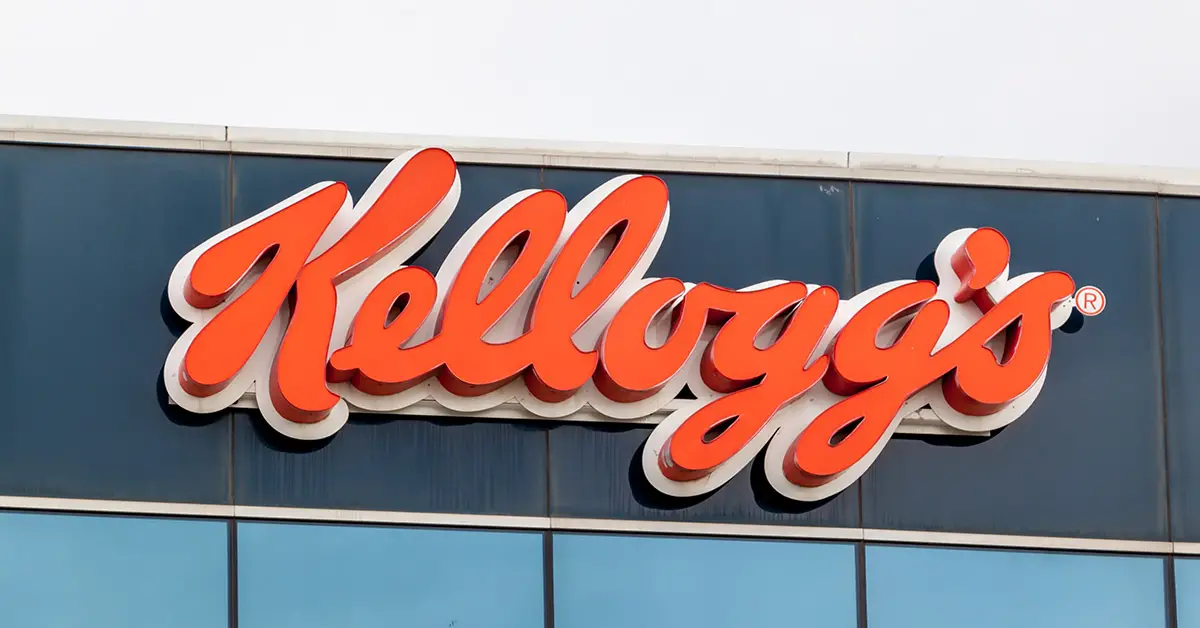Kellogg’s workers are on strike after a year of fraught negotiations. All 1,400 members of the Bakery, Confectionery, Tobacco Workers, and Grain Millers International Union took to protesting. These workers produce breakfast staples like Rice Krispies, Fruit Loops, Corn Flakes, and Raisin Bran; however, they were overworked with little benefits. In fact, Kellogg’s proposed pay and benefits cuts despite the severe understaffing that forces employees to work overtime. Sometimes 16-hours days, seven days a week. All without a vacation for months.
“For more than a year throughout the Covid-19 pandemic, Kellogg workers around the country have been working long, hard hours, day in and day out, to produce Kellogg ready-to-eat cereals for American families,” said Anthony Shelton. Shelton is president of the Bakery, Confectionery, Tobacco Workers and Grain Millers International Union.
“Kellogg’s response to these loyal, hardworking employees has been to demand these workers give up quality health care, retirement benefits, and holiday and vacation pay. The company continues to threaten to send additional jobs to Mexico if workers do not accept outrageous proposals that take away protections that workers have had for decades.” [1]
Kellogg’s Workers Go on Strike
“We’re working 12 to 16 hours a day to meet the increased demand in the cereal market. I’ve worked for two years with no weekends off other than vacation days. You miss out on a lot—family time, don’t get to see kids play sports, don’t get to see your spouse,” said Kerry Williams, a mechanic who has worked at the Kellogg’s factory for 18 years.
In response, Kellogg’s spokesperson Kris Bahner stated the company was “disappointed by the union’s decision to strike.”
“Kellogg provides compensation and benefits for our US [ready to eat cereal] employees that are among the industry’s best,” Bahner said. “Our offer includes increases to pay and benefits for our employees while helping us meet the challenges of the changing cereal business.”
Kellogg’s was one of the many businesses that flourished during the pandemic and lockdown. After all, people had to eat at home, so they stockpiled cereal. In 2020, Kellogg’s CEO, Steve Cahillane, earned over $11.6 million. Meanwhile, workers got small pay bonuses and cookies for working to the detriment of their health. Factories in Michigan, Nebraska, and Pennsylvania endured large outbreaks. [2]
“I’d like to highlight executive-level compensation, and the bonuses [executives] received during the pandemic,” said Trevor Bidelman, who has worked there for 17 years and is president of his local union. “All of that was made possible because we worked seven days a week 16-hours a day. Now with their greed, they want to thank us by cutting our jobs and making our future workforce have less than what our current workforce does.”
The Threat of Losing Their Jobs
Bidelman explained that some workers at the Battle Creek, Michigan factory worked 120 days without a vacation because of the understaffing. And in September, Kellogg’s announced it was cutting 212 people at their plant, leading the workers to fear losing their jobs. Recently, Kellogg’s has been shifting facilities to Mexico. There labor costs are cheaper, forcing many workers in the United States into unemployment. “It’s been steadily worse since I’ve been here, as far as how I’m treated,” said Bidelman. “The pandemic heightened it.”
The threat of losing jobs to Mexico if workers don’t accept the company’s demand has angered many employees. Plus, there’s another issue with moving work to Mexico.
“A lot of Americans probably don’t have too much issue with the Nike or Under Armor hats being made elsewhere or even our vehicles. But when they start manufacturing our food down where they are out of the FDA control and OSHA control, I have a huge problem with that,” said Shelton. [3]
“We want to eliminate the two-tier wage system”
“It’s really amazing that a company that makes and has this much money can’t staff enough people to have a day off,” he added. “We struggle getting funeral days off for an aunt or uncle [who has passed]. If it’s a friend, too bad.“
Kellogg’s proposed a two-tier wage system that cuts premium health care, vacation pay, and retirement benefits. A two-tier employment system is a common way for employers to lower costs and working conditions without incensing the veteran workers.
“The two-tier wage system was implemented in 2015 when Kellogg’s threatened plant closure and gave a substantial signing bonus to new workers,” said Dan Osborn. Osborn is a mechanic at the Kellogg’s factory in Omaha, and the president of his local union. “They dangled a carrot in front of us and through fear and intimidation got us to do that. Now we want to eliminate the two-tier wage system.” [4]
Keep Reading: Train Company Apologizes After Conductor Said ‘Good Morning, Ladies And Gentlemen’
Sources
- “Kellogg’s strike: 1,400 cereal factory workers hit picket lines.” CNN. Chris Isidore and Rob McLean. October 6, 2021
- “Workers on strike at Kellogg’s cereal plants in U.S.” The Washington Post. Aaron Gregg. October 6, 2021
- “Workers go on strike against Kellogg’s U.S. cereal plants.” NPR. The Associated Press. October 5, 2021
- “‘People Work 100 Days Straight’: Kellogg’s Workers Shut Down Cereal Factories.” Vice. Lauren Kaori Gurley. October 6, 2021

